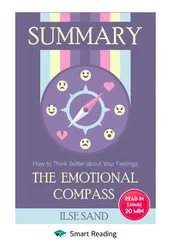The self-help literature, which accounts for a substantial portion of the book market in the United States, has many unfortunate effects on the general perception of psychology. First, like the Freud problem, it creates confusion concerning the problems that dominate the attention of psychologists. For example, although a substantial number of psychologists are engaged in providing therapy for problems of obesity, of relationships, and of sexuality and also in researching these problems, the actual number is far less than that suggested by their representation in the self-help literature. This misrepresentation also contributes to the public’s view that most psychologists are engaged in the treatment of and research on abnormal behavior. In fact, most psychological research is directed at nonpathological behavior that is typical of all humans.
Beyond the content confusion, the self-help literature creates an inaccurate impression of the methods and goals of psychology. As we showed in Chapter 4, the science of psychology does not consider a few case studies, testimonials, and personal experiences—which are the database for most of the self-help “therapies”—adequate empirical evidence to support the efficacy of a therapy. The self-help literature misleads the public by implying that this is the type of database on which most psychological conclusions rest. As illustrated in Chapter 8, the confirmation of a theory must rest on many different types of evidence, and case studies yield the weakest type of data. It is a fundamental mistake to view such data as definitive proof of a particular theory or therapy.
Finally, the self-help literature creates confusion about the goals of psychology and about the type of knowledge that most psychological investigations seek. It strongly implies that psychological researchers seek what has been termed “recipe knowledge.” Recipe knowledge is the knowledge of how to use something without knowledge of the fundamental principles that govern its functioning. For example, most people know a lot about how to use a computer, but they know very little about how a computer actually works. This is recipe knowledge of the computer. Our knowledge of many technological products in our society is also recipe knowledge.
Of course, this is not an entirely bad thing. Indeed, most technological products have been designed to be used without knowledge of all the principles that make them work. In fact, the idea of recipe knowledge provides one way of conceptualizing the difference between basic and applied research. The basic researcher seeks to uncover the fundamental principles of nature without necessarily worrying about whether they can be turned into recipe knowledge. The applied researcher is more interested in translating basic principles into a product that requires only recipe knowledge.
Most self-help literature provides only recipe knowledge about human behavior. It usually boils down to the form “Do X and you will become more Y,” or “Do Z and person A will react more B.” Now, there is nothing inherently wrong here, assuming, of course, that the recipes provided are correct (which is usually not a safe assumption). Many legitimate psychotherapies also provide much recipe knowledge. However, a problem arises when people mistakenly view recipe knowledge as the ultimate goal of all psychological research. Although a number of psychological researchers do work on turning basic behavioral principles into usable psychotherapeutic techniques, health-maintaining behavior programs, or models of efficient industrial organization, psychological research is largely basic research aimed at uncovering general facts and theories about behavior. Here we have another reason why psychological research may seem strange to the outsider. Investigations of basic principles often look very different from studies focused on developing applications.
We would consider it silly to walk into a molecular biology laboratory and ask a researcher whether we should take two or three aspirins for a headache. The reason is not that molecular biology has nothing to do with pain relief. Future developments in pain relievers will probably involve knowledge from this area of science. It is silly to ask this question because the molecular biologist is simply not working at the recipe level that deals with whether to take two aspirins or three. The researcher is concerned with fundamental facts about the molecular level of biological substances. These facts could lead to recipe knowledge in any number of areas, but the transformation to recipe knowledge will probably not be accomplished by the same investigator who uncovered the basic facts at the molecular level, nor will it be accomplished by use of the same methods that led to the original discoveries.
Thus, because the self-help literature has led people to believe that most psychologists work at developing recipe knowledge, much of the basic research that psychologists conduct appears strange. What did Hecht’s data (Chapter 7) about subjects looking at red lights in a dark room have to do with anything in the real world? Well, on the surface, nothing. Hecht was interested in uncovering basic laws about the way the visual system adapts to darkness. The basic principles were eventually translated into recipe knowledge of how to deal with some specific problems, such as night blindness due to vitamin deficiency. However, this translation was not done by Hecht himself, and it did not come until several years later.
Thus, the self-help literature has two unfortunate side effects on the public perception of psychology. The range of problems addressed in this literature does not necessarily represent the focus of contemporary psychology. Instead, it reflects, quite naturally, what people want to read about. The logic of television, radio, and Web-based content is the same. However, the focus of science is not determined by polling the public. In all sciences, and in psychology in particular, there is usually a gap between the ideas that are productive for scientists and those that can be packaged to sell to the public. For example, there is legitimate research on “the power of positive thinking” in psychology (Sharot, 2011), but it bears little resemblance to the self-help prescriptions to that effect that are heard on the Oprah Show . Instead, the real psychological research literature is full of caveats, concerns about converging evidence, and the search for connectivity across research methods—in short, all of the real research concerns discussed in this book.
Consider the area of weight loss prescriptions. Scientists have slowly accumulated evidence for some mild prescriptions that help with weight control (Brody, 2008), but they are not breakthrough remedies. It is clear that the problem of obesity is complex and is subject to our warnings about multiple causation (Bartoshuk, 2009). The problem will clearly not have a single magic-bullet solution. Many scientists have stressed, for example, how the complexities of the food environment itself (advertising, portion sizes, marketing to children) contribute to the nation’s obesity problem (Brownell, 2011).
By contrast, consider the report of retired physician Harriet Hall (2008), who writes a science-based medicine blog. She describes one weight-loss product that “made the usual claims: eat all you want and still lose weight. But it had the best advertising slogan ever: ‘We couldn’t say it in print if it wasn’t true!’ I laughed out loud. Anyone can say anything in print until they get caught. These diet ads all say things that aren’t true, and the Federal Trade Commission can’t begin to catch them all” (p. 47). Hall’s point is that there is a complete disconnect between good science and what the media (from television to print to websites) wants to publicize. The media want quick answers to questions that are of “public interest,” whereas science produces slow answers to questions that are scientifically answerable—and all the questions that the public finds interesting might not be answerable.
Читать дальше












